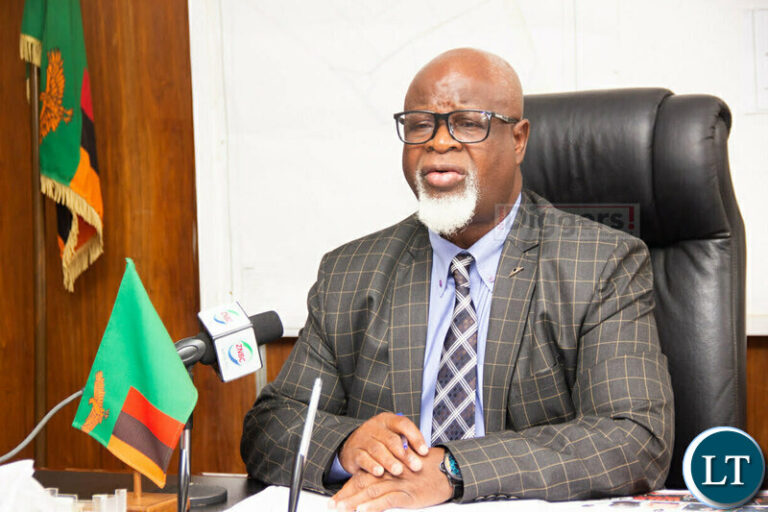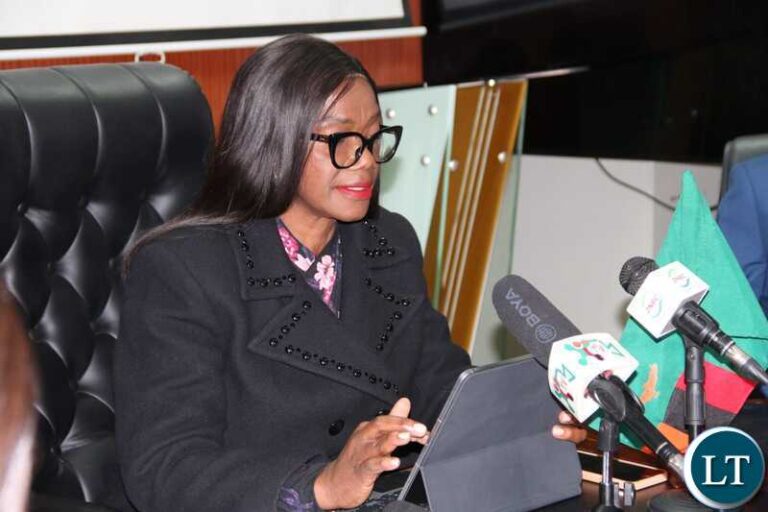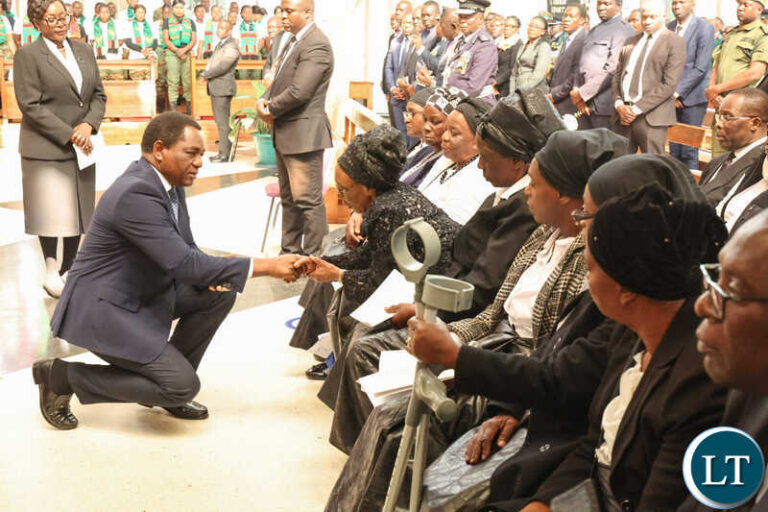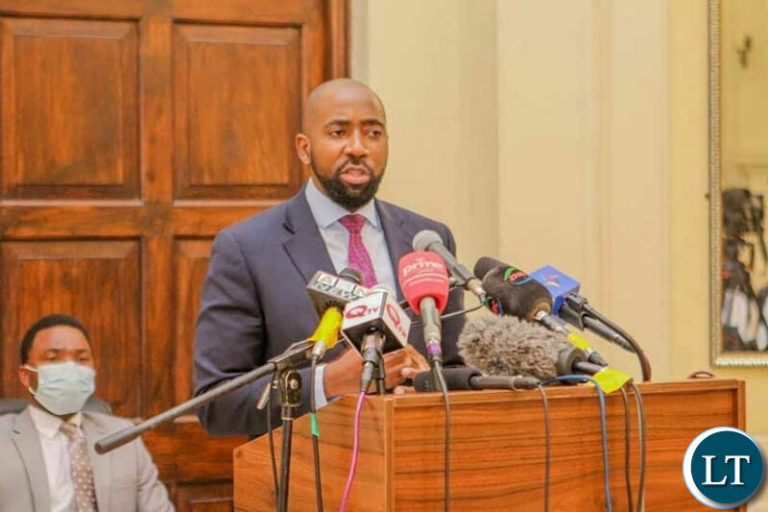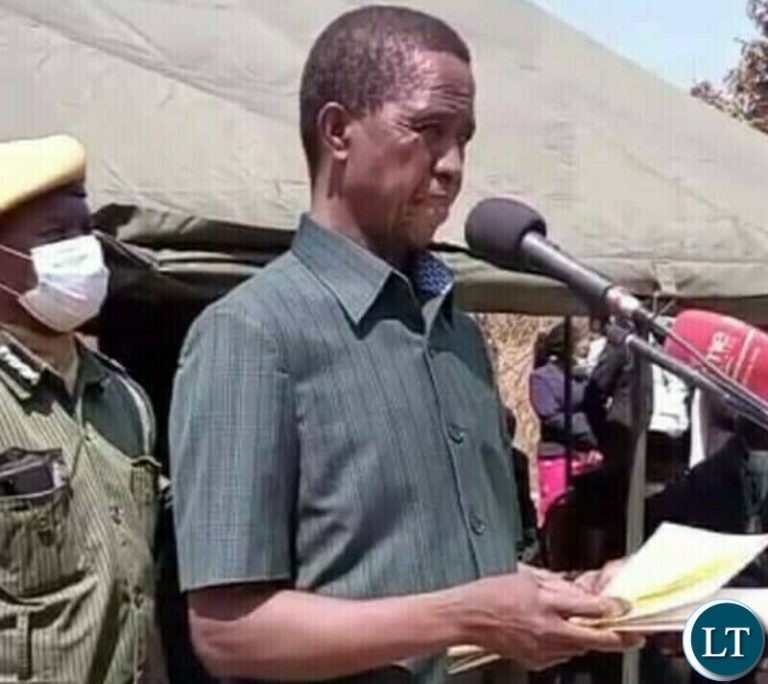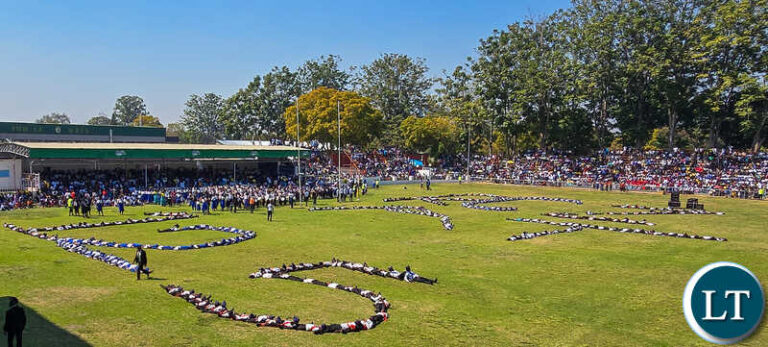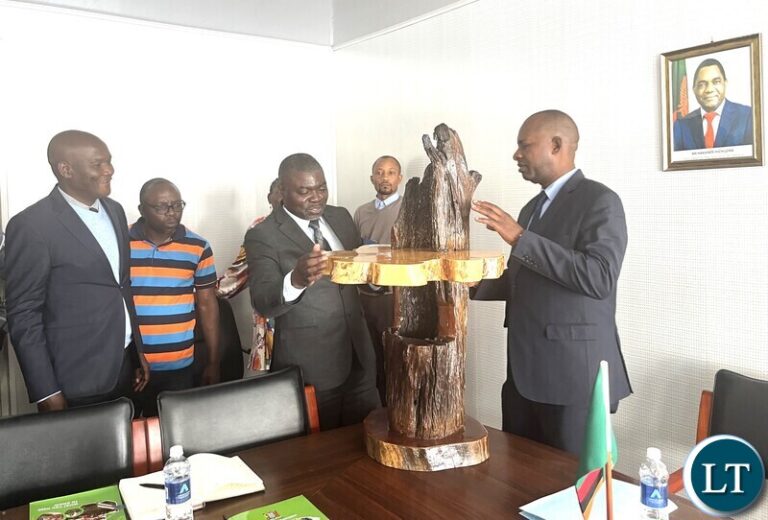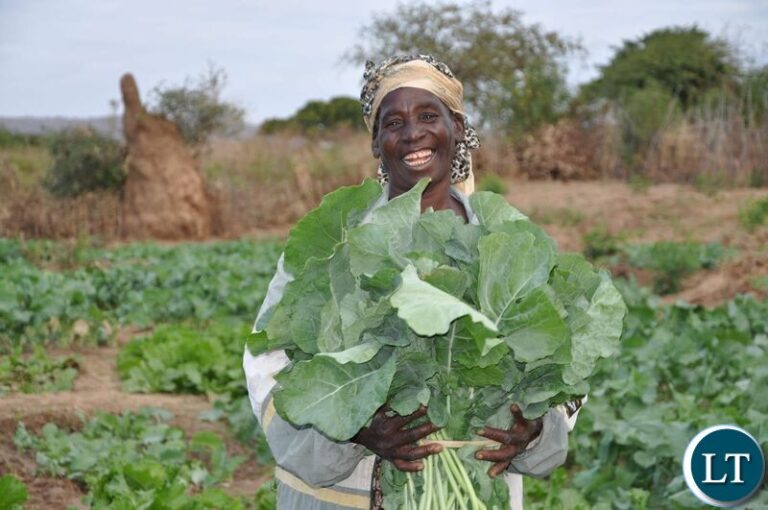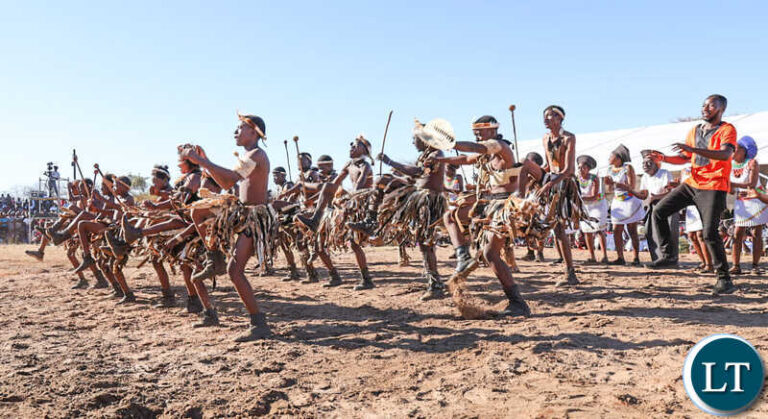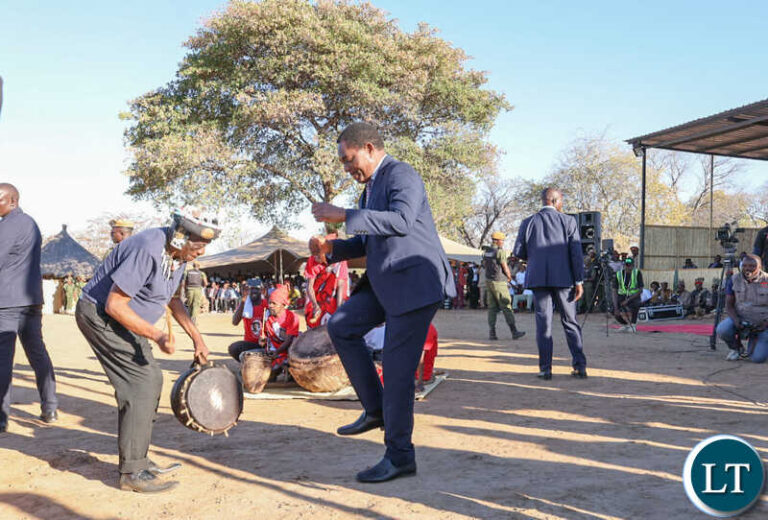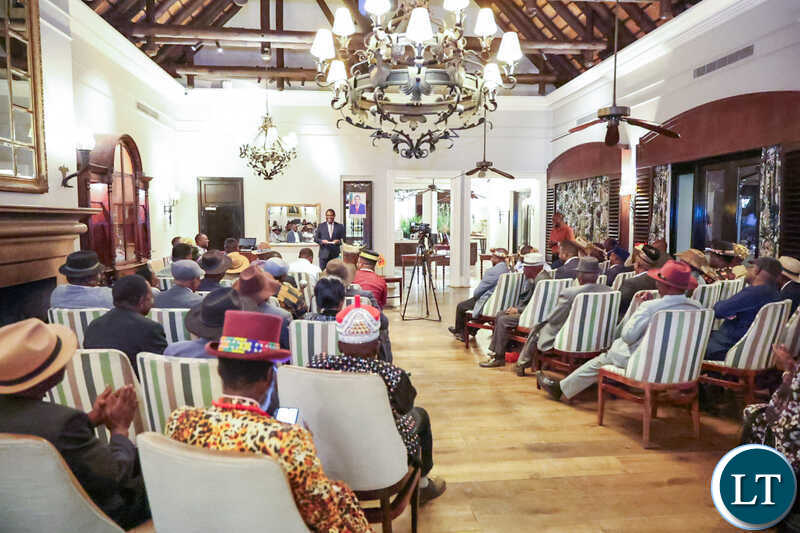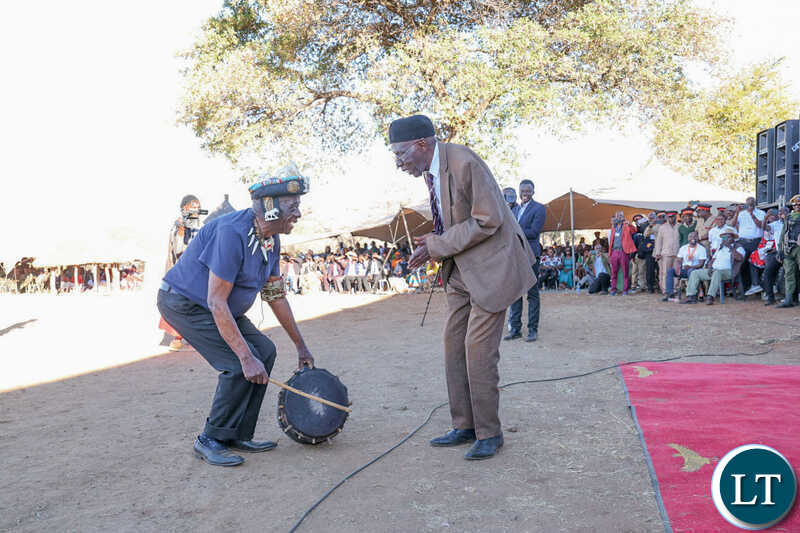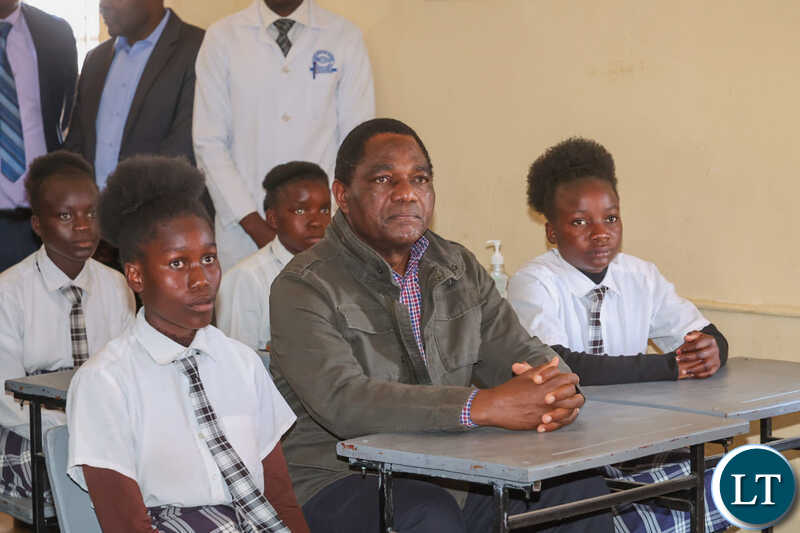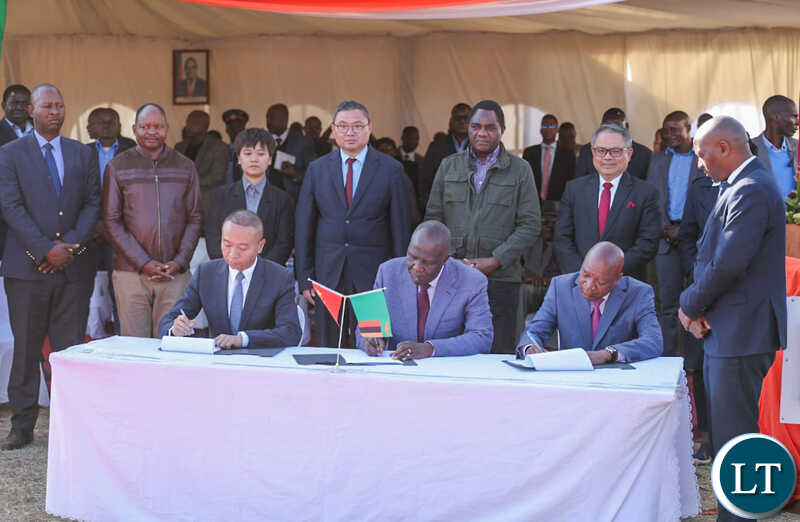IMF incorrect, drought not only major cause of low GDP Growth
By Mwansa Chalwe Snr
This performance analysis of the Zambian economy has been done from four different perspectives of the main players in our economy – International Monetary Fund (IMF), Private Sector, the Government, and Households. This approach gives a simplified, practical and unbiased picture of the performance of the economy, and avoids giving a skewed picture of one perspective only. The objective of the approach is to make it easy for ordinary Zambian citizens to understand the status of the Zambian economy, by providing an independent and evidenced based view of the economy.
IMF PERFORMANCE REVIEW OF ZAMBIAN ECONOMY
From April 24 to May 7, 2024, the IMF team led by Ms. Mercedes Vera carried out a review of the performance of the Zambian economy. And according to their assessment, Zambia’s economic performance was being drastically affected by drought.
“The 2024 outlook has worsened due to the drought; GDP growth is now projected at 2.3 percent, half the forecast in December 2023. Agriculture production is expected to contract by 19 percent; power outages will hinder manufacturing activity; and copper production is expected to recover more gradually than initially envisaged.
“ Monetary policy will need to remain appropriately tight, while allowing the exchange rate to play its role as a shock absorber. With inflation still outside the target band, the Bank of Zambia will remain vigilant in curbing inflation toward the 6-8 percent target band”, The IMF said in a statement on 3rd June,2024, when announcing the Staff Level agreement with Zambia.
The major take aways from the IMF analysis of the Zambian economy is firstly, that drought is the major cause of the poor performance of the economy. And secondly, that the current monetary policy is working, and the Bank of Zambia should continue with it.Thirdly, that tight monetary policies are the panacea to reducing Zambian inflation and stimulating economic growth. These assertions are being challenged by many local experts and commentators.
The practical reality on the ground is that, drought is just one of the major contributing factors to Zambia’s low GDP growth. Zambia’s Economic growth has been dropping, even before the drought. The evidence shows that since IMF implemented their Extended Credit Facility (ECF) programme and the extreme Monetary Policy, key economic metrics have been going downwards, especially growth:2021(5.8%);2022(5.2%); 2023(4.7%),2024 projection(2.3%).The drought has merely worsened the situation. Unemployment and poverty levels have also become worse since the programme started.
Apart from drought, the other major contributing factor to low economic growth according to some analysts, is the IMF supervised monetary policy, which has created a critical shortage of liquidity in the Zambian economy thus restraining private sector activities. This assertion is supported by empirical evidence from the monthly Stanbic Bank Purchasing Manager Index of the past twenty four months.
There is also the issue of the continued escalation of inflation, despite the stringent application of Monetary Policies which does not make sense to ordinary citizens. How does one explain, for example, the fact that when the IMF implemented its Extended Credit Facility (ECF) in August,2022, Zambia’s inflation was in single digits at 9.8%, but after twenty two (22) months of the programme, inflation has moved up to 15.2% as at the end of June, despite the tight monetary policy.
The evidence for the past two years is clear. The IMF inspired extreme Monetary Policy on its own, can neither tame Zambian inflation nor grow the economy; because of the unique structure of the Zambian economy, which it seems is not fully appreciated by outsiders. Bank Of Zambia has increased Monetary Policy rate to 13.5% from single digits of 9.0% in August,2022, when the IMF ECF started. The Statutory Reserve Ratio (SRR) has also gone up to 26.5% in 2024 from 9.0% in 2022, which has resulted in high interest rates and a critical shortage of liquidity.
Zambia’s re-owned Economist, Professor Oliver Saasa, has also questioned the use of the monetary policy instrument to solve Zambia’s economic problems.
“I think what many people sometimes also miss is that you cannot fully correct a fiscal problem with the monetary instrument,” He said in an interview with the News Diggers Newspaper. “You can do all those things, but ultimately the solution to what we are having now is to grow the economy; not necessarily to fidget with the monetary policy instruments, not necessarily to raise the statutory reserve ratio, not necessarily to increase the policy rate in order to make the appetite to borrow more lower. When you do that, then you are starving out the very actors that are so fundamental to solving the problem that you think you are solving; you are starving the private sector.”
Zambia’s current experience under the ECF Programme, is similar to Mozambique, which has been on a three year $456million IMF Programme since May,2022. The Bank of Mozambique’s Statutory Reserve Ratio is 39%, and Alfredo Mondlane, Head of Economics and Research at FNB Mozambique bemoaned this monetary policy as negatively affecting banking industry and the private sector
“In order to stimulate access to credit, we need the reserve requirement ratio to fall because the banks product is money. Banks need their product to support the real economy. At the moment, the 39 per cent coefficient makes access to credit more difficult. The situation doesn’t allow for liquidity to energize the economy and households,” He told the Independent daily: O Pais.
Maliwanda Simumba an internationally respected Zambian Economist is also critical of the extreme Monetary Policy, and he opined that : “The monetary policy the Bank of Zambia (BOZ) is pursuing is not sustainable. Money is the lifeblood of any economy. They have simplified the definition of inflation to : “too much money chasing few goods.” Zambia is faced with an economic condition called stagflation – a combination of inflation and stagnation of the economy. You can tolerate some inflation, and not deflation or stagnation. When you invoke deflationary measures then you do not want economic growth, and you continue soaring public debt.”
On the basis of Zambia and Mozambique’s experience, some IMF critics have concluded that, just like it was under the Structural Adjustment Programme (SAP) of the 1980s,1990s and early 2000s, the IMF under the new ECF are inflexible, and do not seem to take individual countries’ practical economic circumstances into account. They prescribe the same medicine. The IMF seems to follow the Psychologist , Dr. Abraham Maslow’s concept of the “law of the instrument”. The concept states that: “ If the only tool you have is a hammer, you tend to see every problem as a nail.”
PRIVATE SECTOR ECONOMIC PERFORMANCE
The Zambian private sector has not been doing well in the first six months of 2024.One of the top reasons cited for the poor performance is the shortage of liquidity caused by the uncompromising IMF driven Bank of Zambia monetary policy. Micro, Small and Medium enterprises Enterprises (MSMEs) are struggling and barely surviving due to shortage of liquidity and crippling power crisis.
The evidence of the poor performance of the Private Sector in 2023 and the first half of 2024 has been captured in the monthly Stanbic Purchasing Manager’s Index (PMI) Surveys, which have shown the index to be below the 50 threshold for most months. Any number below 50 indicates poor performance of the private sector activity.
“The latest reading pointed to a renewed decline in the country’s private sector activity, amid widespread reports of money shortages related to currency depreciation and high fuel prices, and lower customer numbers,” The 2023 PMI Surveys reported.
“The headline PMI posted at 47.9 in June, signal a solid and sharper decline in the health of the Zambian private sector. The latest deterioration in business conditions extended the current sequence of downturn to seven months. Zambian companies recorded the fastest decrease in output since February 2021.Meanwhile, firms continued to reduce their input buying and employment in response to weaker demand conditions,” The Stanbic Purchasing Manager’s Index (PMI) Surveys for June, reported on July 5, 2024.
In general terms, Zambia’s Private sector growth is constrained by the high cost of doing business in Zambia and the shortage of liquidity. The term: “high cost of doing business,” is made up many components. These include high interest rates, high fuel prices, high cost of imported inputs, excessive taxation, high electricity tariffs, multiplicity of regulations and licences with their attendant levies. There is need to address these two issues, if the Zambian economy is to start growing significantly. And curiously, the IMF has not focused on them and the two structural issues. And to expect that the Zambian economy will achieve inclusive growth (7-10%) based on their current strategy is a fallacy and a mirage.
GOVERMENT PERFORMANCE REVIEW
The performance of the economy in the first half of the year from the government’s perspective was clearly expressed by the Minister of Finance and National Planning, Dr. Situmbeko Musokotwane when addressing Zambia Association of Manufacturers (ZAM) during the 2025 pre-budget meeting.
“ It is a tough year, there are very strong headwinds against the economy. We projected economic growth at 5% following the 4.7% gains of 2023,we have revised to 2.7%,” He said.
The poor performance of the economy is reflected in a number of metrics. Zambia’s current interest rates are high, and is reflected in Monetary policy rate of 13.5% with bank rates ranging from 25% -35%; inflation has been going up and is at 15.2%; the kwacha has been unstable and hovering between K25 to K27 to a dollar but dropped to K24.4 at end of June after IMF infusion of $588million loan ; the Bank of Zambia has been experiencing undersubscriptions in both treasury bills and bonds this year. By the end of May 2024, the Bank only managed to raise K16.3billion from a target of K13.5 billion, which is almost 50% undersubscription.
The number one metric that is causing havoc in the Zambian economy is the depreciation of the Kwacha. This has been unstable and depreciating in the last two years. And prominent Zambian Economist Trevor Hambayi diagnosed one of the major causes in an interview with Diamond TV.
“The one thing that is putting pressure on the exchange rate is because our economy is driven by foreign entities. And all of them are generating revenue which they are externalizing. You start with mining sector that generates 70% of our hard currency, they are externalizing those resources. If you look at any other sector of the economy; whether you are look at wholesale and resale trade, whether you looking at ICT, whether you are looking at construction, all the major players that are running these entities are international companies,” Hambayi said. “What it means is that all the revenues they are generating, they are also externalizing. And this is where our biggest challenge as a country comes in. If we start supporting our SME sector ,the SMEs is local, as soon as they start contributing more to the economy, we will start to have the hard currency they will be generating staying in the country.”
There were, however, a number of positive tangible and intangible achievements by government during the period under review. The Government’s budget performance was, fairly good, as per Ministry of Finance presentation during the 2025-2027 Medium Term Budget Plan Consultations.
“We look at the 2024 first Quarter budget performance; total collections reached K32.34 billion surpassing the budget target of K32.31 billion. This positive performance reflects strong fiscal discipline”, The Ministry stated. “The government expenditure during the first quarter was K39 billion against projected K42 billion. This shortfall can be attributed to underperformance of auctions which is treasury bills and bonds.”
The Zambian government and the IMF achieved a Staff-Level-Agreement on economic policies and reforms following the successful third review of the Extended Credit Facility (ECF) Programme which resulted in Zambia receiving an additional US$ 388 million to bring total loan to $1.7billion.
In addition, over 90% Euro Bond holders of $3billion voted for Zambia’s debt restructuring proposal and consequently received a credit rating upgrade by two Global Rating Agencies – Fitch and Moody’s.
HOUSEHOLDS PERCEPTION OF ZAMBIA’S ECONOMY
The majority of ordinary Zambians’ current perception of the economy is that it is not working well for the them. The cost of living is rather high. They justify this claim by pointing to the high prices of mealie meal, fuel, electricity, interest rates, transport, exchange rate and the high unemployment rate. Apparently, these claims by citizens seem to be supported by empirical evidence from economic statistical surveys done by various credible organizations, and so no rational person can argue.
Zambia Statistics Agency (Zamstats) reported inflation to have increased from 9.9% in December,2023 to 15.2% in June,2024. The Jesuit Centre for economic reflection (JCTR) basket of goods for May,2024 was at K10,348 compared to K9,157.41 in December, 2023.
To the government’s credit, most of its officials especially the spokesperson, Cornelius Mweetwa has acknowledged the rough times that citizens are facing. They are empathetic, which is a good thing.
CONCLUSION
There is no doubt that from the Private sector and Household point of view, the economic situation has certainly deteriorated since the IMF ECF was launched, almost two years ago in August,2022.
The evidence seems to support Zambia’s former Finance Minister, the late Alexander Chikwanda’s assertion that based on his experience, the IMF can make a country’s economic situation worse. Speaking to Bloomberg News on September 7, 2015, He said: “ The IMF is not the best mechanism for helping countries which are down. In some cases, it even compounds your difficulties.”
In order to solve Zambia’s economic problems, one needs to understand and address Zambia’s three major priority economic structural problems. The first is that the private sector is substantially foreign denominated and externalize most of the foreign exchange they earn. Secondly, the country is too import dependant. And lastly, the Zambian economy is almost 90% Informal. These are the practical major issues that require short term, medium and long term solutions, not over focusing on monetary policy and taxing the already over-taxed citizens and businesses in the name of fiscal consolidation.
It is hoped that this article sends a strong message to the Bretton Woods institutions –IMF and World Bank – that they need to be flexible, practical and moderate their interventions when they are not working. They need to be more politically sensitive to avoid the recent Kenyan situation. They also should learn to extend consultations to independent Zambian experts and thinkers as they understand the economy better from the practical point of view, as former Zambian Commerce Dipak Patel observed in a Private Sector WhatsApp Chat group: “They have meetings with some select private sector stakeholders who nod their heads! In 2022, a few of us outside the business associations had a meeting with a IMF team during the second review, where mostly we disagreed with many of the issues, we were never invited again”.
The silver bullet solution to grow the Zambian economy and reduce inflation is to implement an innovative home – grown solution called Micro-Enterprise Stimulus Initiative (MESI). This should be financed by the already available funds in the Constituency Development Fund (CDF),Citizen Economic Empowerment Commission (CEEC) and from Private Sector Corporate Social responsibility budgets. This proposed initiative can transform Zambia’s economic structure within 12-18 months, and unable economic growth to go into double digits, thereby solve the youth unemployment problem by creating millions of jobs from the latent potential of micro enterprises, while at the same time broadening the tax base. The design (the “HOW”), of such an initiative is beyond the scope of this article and proprietary information.
The writer is a Chartered Accountant, Author and an independent financial analyst and Economic Commentator. He is the Founder of Prosper Knowledge Solutions Ltd, a virtual Knowledge and Strategy firm. Contact: [email protected]



